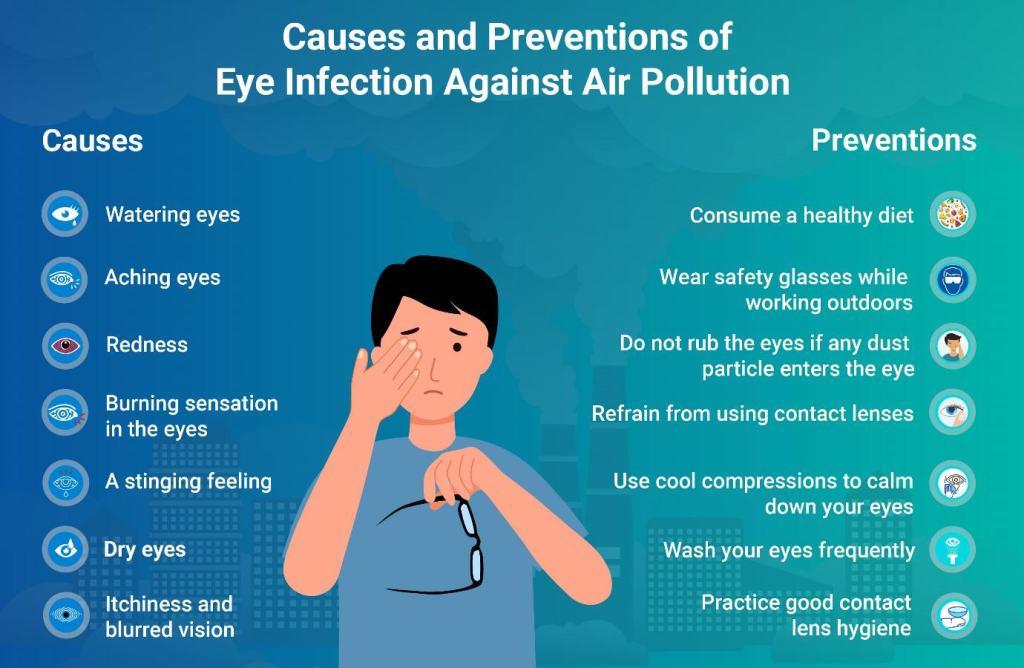
Traveling is an exciting experience, but it also exposes you to different environments that may affect your health, including your eyes. Eye infections can be caused by bacteria, viruses, or allergens, leading to discomfort, redness, and irritation. To ensure your eyes remain healthy during your trip, follow these essential tips to avoid eye infections while traveling.
1. Keep Your Hands Clean
Your hands come into contact with various surfaces throughout your journey, from airplane tray tables to hotel doorknobs. Touching your eyes with dirty hands can introduce harmful bacteria and viruses, increasing the risk of infection. Always wash your hands with soap and water regularly and carry an alcohol-based hand sanitizer for convenience.
2. Avoid Touching Your Eyes
Even if your hands are clean, it is best to avoid rubbing or touching your eyes. This habit can transfer bacteria and dirt into your eyes, leading to infections like conjunctivitis (pink eye). If you feel irritation, use a clean tissue or eye drops instead of rubbing your eyes directly.
3. Use Clean Towels and Pillowcases
Hotels, hostels, and even airplanes may not always provide freshly washed linens. Carrying your own clean pillowcase and small towel can help reduce exposure to bacteria and allergens that may cause eye infections. If this is not possible, inspect the provided linens and avoid using them if they appear unclean.
4. Stay Hydrated
Dry eyes are more prone to irritation and infections, especially during air travel, where cabin air is dry. Drink plenty of water to stay hydrated and use artificial tears if your eyes feel dry. Avoid excessive caffeine and alcohol consumption, as they can contribute to dehydration.
5. Wear Sunglasses
Protecting your eyes from dust, wind, and UV rays is essential when traveling. Sunglasses with UV protection help shield your eyes from harmful rays and airborne irritants that could lead to infections or discomfort. If you wear contact lenses, consider switching to glasses in environments where dust and pollution are high.
6. Be Cautious with Contact Lenses
If you wear contact lenses, maintaining proper hygiene is crucial to preventing eye infections. Follow these guidelines:
- Always wash your hands before handling your lenses.
- Use fresh contact lens solution every time you store your lenses.
- Avoid wearing lenses while swimming or showering to prevent bacterial contamination.
- Consider bringing daily disposable lenses for convenience and hygiene.
7. Avoid Sharing Personal Eye Care Items
Sharing items such as eye drops, contact lens cases, or makeup can transfer bacteria and lead to infections. Always use your own personal eye care products and avoid borrowing from others, no matter how clean they appear.
8. Use Eye Drops Wisely
If you are traveling to a dry or polluted area, lubricating eye drops can help keep your eyes comfortable. However, make sure to use preservative-free eye drops and avoid sharing them with others. If you experience persistent redness or discomfort, consult an eye specialist.
9. Be Mindful of Swimming Pools and Hot Tubs
Swimming pools and hot tubs, especially in public places, may contain bacteria and chemicals that can irritate your eyes. Always wear swimming goggles to protect your eyes, and rinse them with fresh water immediately after swimming.
10. Seek Medical Attention if Needed
If you experience persistent eye redness, pain, swelling, or discharge, seek medical attention as soon as possible. Delaying treatment can worsen the infection and lead to complications.
Final Thoughts
Your eyes are an essential part of your overall well-being, and taking preventive measures during travel can help keep them healthy and infection-free. By practicing good hygiene, protecting your eyes from environmental factors, and using eye care products wisely, you can enjoy your travels without discomfort. Safe travels and happy adventures!